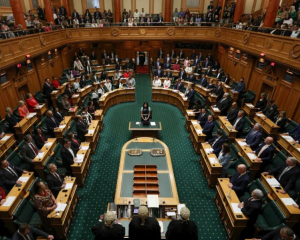Changing New Zealand's summer holidays to February when the weather is more settled would cause major problems for businesses, a business leader says.
The proposed shift has been discussed since Peter Dunne expressed his support to the Sunday Star Times in the weekend.
"What I'd envisage is you'd have would be a shorter Christmas period ... and then we would resume business as usual until the end of January and the holiday month would become February," he said.
Dunne said he has not yet mounted a campaign to make the change, but he thinks it is a good idea.
"The weather is better and more settled in February/March. I do think it's something we should think seriously about and it's something I think the public would get used to fairly quickly," he said.
"There are some issues around the questions of how the school terms might fit but they could be adjusted."
Dunne said he also understood the change could impact the business cycle but he didn't think any of the issue were "insurmountable".
"That's transition. These are things that we could get over if we decided to make a change."
Since speaking out, Dunne said he had received only positive feedback.
"The comments that I have seen on Twitter, Facebook and just in general emails ... I haven't had one negative one yet."
However, Business New Zealand CEO Phil O'Reilly says while he likes the idea of taking holiday at the hottest time of the year, the practicality was a "problem".
"For me, as a human being, it's a nice idea.
"As a personal thought, I suspect most New Zealanders would say 'Yeah, I'd like to be taking February off, because the weather's better."'
But as a business representative, the problems associated would be two-fold, he said.
The first would be the fact that nowhere else takes their holidays in February.
"We'd be on holiday and all of our customers would be ringing us up saying 'where are you?"'
We'd be out of step with what's happening with our trading partners.
Secondly, the "sunk costs" of the change - such as changing the school year - would be big.
"It's big, I don't know how you'd define it but it's multi-billions. Big numbers.
"Those two things alone would make you say 'It's probably too hard'."
O'Reilly also noted that, as we move away from the traditional factory-based model towards a more service and knowledge-based economy, people have more choice about when they want to take their holidays anyway.
"The [thing] that is insurmountable is that nobody else in the world is on holiday in February.
"We don't get to tell the world what to do."
A WeatherWatch poll last year asked readers to choose when their preference for holidays would be.
Twenty-eight per cent of respondents wanted to leave the holidays as they were, 17 per cent wanted to take their holiday in January and 55 per cent said they wanted to take the time off in February.
"It does make sense if you think about it. December is very much like spring, a lot of meteorologists believe that summer doesn't officially start until the longest day of the year just before Christmas," head analyst Philip Duncan said.
"We're almost at the wrong end of the season."
- Cassandra Mason of Herald Online











